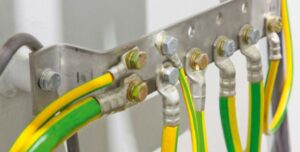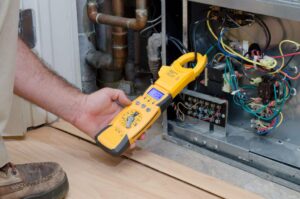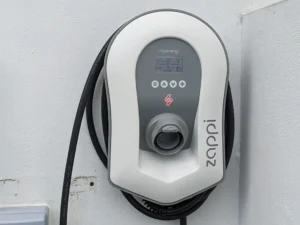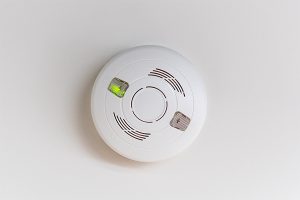There are a few differences between bonding, earthing and grounding. However, earthing and grounding are similar in function when you consider that they both serve a purpose of protection against electrical shock.
Bonding
- Bonding is used to decrease the risk of an electrical shock in case of a fault in the supply of an electrical installation, and a person touches two individual metal parts. So,It is important thing that, you should always hire expert electricians for installation and make your love ones safe from electrical shocks.
- There are two types of bonding which are used in general:
- Main earthing bonding – where two different coloured conductors connect metal pipes (water, gas or oil) from the interior of a building to the main earthing terminal of an electrical installation.
- Supplementary bonding – where two different coloured conductors connect accessible items of metal parts of electrical equipment (i.e. heated towel rails) to accessible metal parts of things that aren’t electrical (i.e. pipes).
- Bonding as such doesn’t protect anything. Bonding is used comprehensively to make sure that all conductors (product, surface or person) are at equal electrical potential. If all conductors are at equal potential, no discharge can happen.

Earthing
- In the case of you having a fault in your electrical installation and a live metal part is touched by you, you are at risk of getting an electrical shock, as the current may use your body as a path from the live metal part to the earth part. Earthing is providing a protective conductor for a fault current to stream to earth.
- It also triggers the fuse or circuit breaker to shut down the electrical current to the circuit that is having the fault. The purpose of earthing is to protect electrical equipment and humans by discharging electrical current to the earth.
Grounding
- Grounding protects your home, appliances and everyone involved from surges in electricity. For instance, if lightning strikes or your power surges for whatever reason, it produces treacherously high voltages of electricity in the system. When your electrical system is adequately grounded, the excess electricity will move into the earth rather than causing damages to everything that is connected to the system.
- Have a grounded electrical system allows it to easily direct power straight where it needs to be, permitting electrical currents to efficiently and safely flow throughout your electrical system.
- Another great benefit of a ground electrical system is that the right amount of power is allocated to the right places. The advantage of this is that earth offers a collective reference point for voltage sources in the electrical system, ensuring that circuits are not overloaded and blown as a result.

- The Earth is an excellent conductor as electricity always search for a path with the least resistance. Instead of going into you, it will go straight into the earth.
- Without having a suitably grounded electrical system, you are at risk of losing any appliances which are connected to your system and damaging them beyond repair. In some cases, this can even lead to a fire starting which will cause extensive structural damages to your home, data loss or physical injuries which could have been prevented.
Looking for a reliable electrician in Perth?
Contact us today on (08) 9220 5201
Contact us today on (08) 9220 5201








